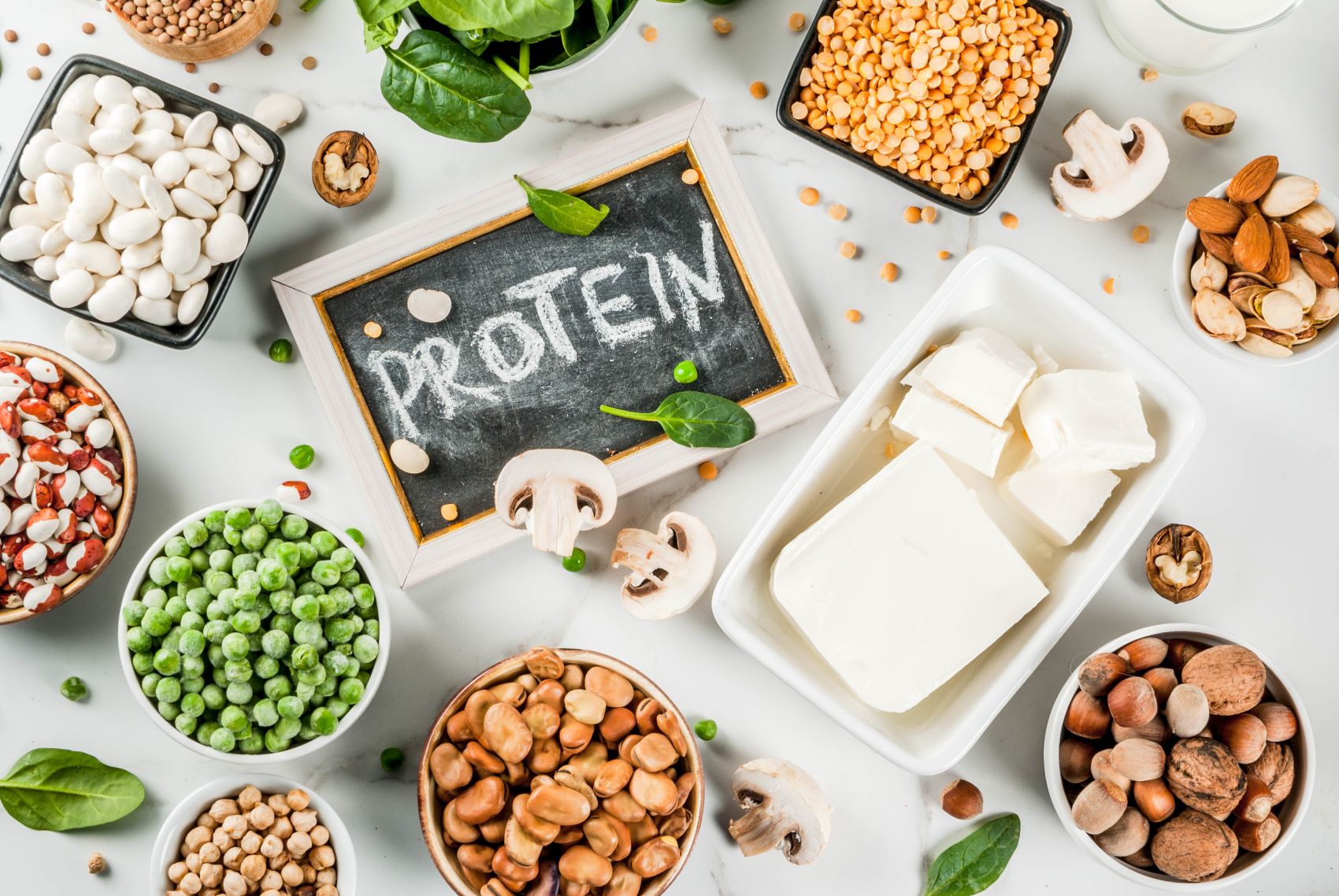All about plant proteins

Dietary protein provides us with amino acids, and from them the body builds a huge variety of structures: muscle proteins, peptide hormones, enzymes, etc. Meat and animal products (dairy and eggs) are mainly considered good sources of dietary protein. Plants are not devoid of this macronutrient, but they usually contain less of it and provide a different amino acid profile. Quite a few myths have grown up around plant proteins, which are worth dealing with.
- Is plant protein inferior to animal protein?
- Plant sources of protein in the diet. Which products to pay attention to?
- Complementary proteins - what's the deal with them?
- Vegan protein supplements
Is plant protein inferior to animal protein?
If we wouldn't go into details, yes. Generally speaking, plant protein can be considered inferior to that from meat. Protein from meat has a great amino acid profile and we consider it a complete protein. Plant proteins, for the most part, are not complete, that is, they lack (or have too little of) at least one of the essential amino acids. Plant proteins are also often less digestible.
The above information is for direct comparison. The issue of protein is different when comparing the whole plant-based diet and the traditional diet, when in each of them protein is provided from multiple sources, not just one product. From the rest of this article, you'll learn why analyzing protein from an entire diet is a better idea than a single product.
Plant sources of protein in the diet. Which products to pay attention to?
The groups of products that are the most important sources of plant protein are:
- legumes (including soy products),
- whole grain cereal products,
- seeds and nuts.
There are few plant products that have a good enough amino acid profile to be considered complete. These include soybeans, quinoa and amaranth.
Complementary proteins - what's the deal with them?
As I mentioned earlier, plant proteins are usually deficient in one or two essential amino acids, making them incomplete. Such limiting amino acids are different in different plant proteins. So if we combine two different plant protein sources that have different limiting amino acids, they will complement each other's amino acid profiles. Such proteins that complement each other are what we call complementary.
An example of complementarity is protein from legumes and from cereals. These foods have different limiting amino acids, and together they form a much better aminogram. So whole grain bread with hummus is a much better source of protein than bread and hummus separately.
Interestingly, experts point out, there is no need to watch the complementarity of proteins in each meal. It is enough that different sources of protein appear in the all-day menu, and the body will make an appropriate use out of the acquired amino acids. The truth is that people on a plant-based diet, who take care of high menu diversity, do not need to bother with this topic at all, because they will still provide all the necessary amino acids.
The average adult should provide at least 0.9 g of protein for every kg of body weight. This is a relatively small amount that can easily be taken in from a varied plant-based diet, even if you don't pay special attention to it. The threshold for recommended protein intake may shift in specific conditions, such as during pregnancy and lactation, in seniors and in athletes.
Vegan protein supplements
Vegan protein can come from a variety of raw materials. It can be pea isolate, pumpkin seeds, rice, sunflower seeds, soybeans. Less popular are bean protein and hemp protein. You can choose a single-source nutrient, but then you need to be mindful of how it fits into your overall diet. For example, if you have few legumes in your diet, it may be beneficial to choose pea protein.
Other vegan proteins are based on a composition of several protein sources. Recently, yeast protein, also used in vegan protein blends, has become increasingly popular. It is characterized by good aminogram, easy digestibility and attractive taste, so yeast protein nutrients are undoubtedly products worth considering.
The advantage of vegan protein nutrients is digestibility. Isolated proteins have better digestibility than virgin food. Thus, in terms of amino acid supply, 10 g of isolated pea protein from a nutritional supplement is more valuable to us than 200 g of peas, which will also provide about 10 g of protein.
Sources:
https://ncez.pzh.gov.pl/wp-content/uploads/2021/03/broszura_bialko.pdf
 ⮜ Previous article
⮜ Previous article
Turkesterone as a natural anabolic. Does it have side effects?
 Next article ⮞
Next article ⮞